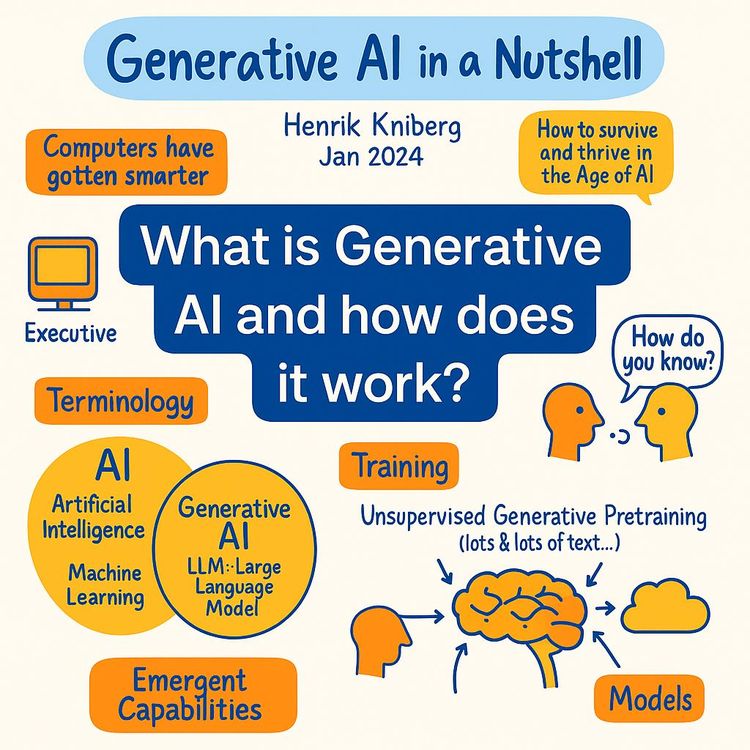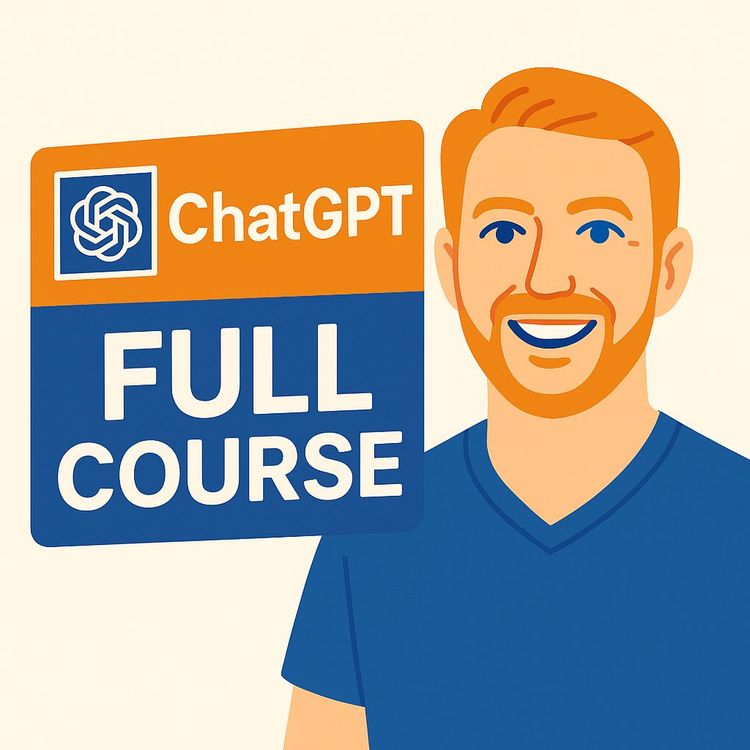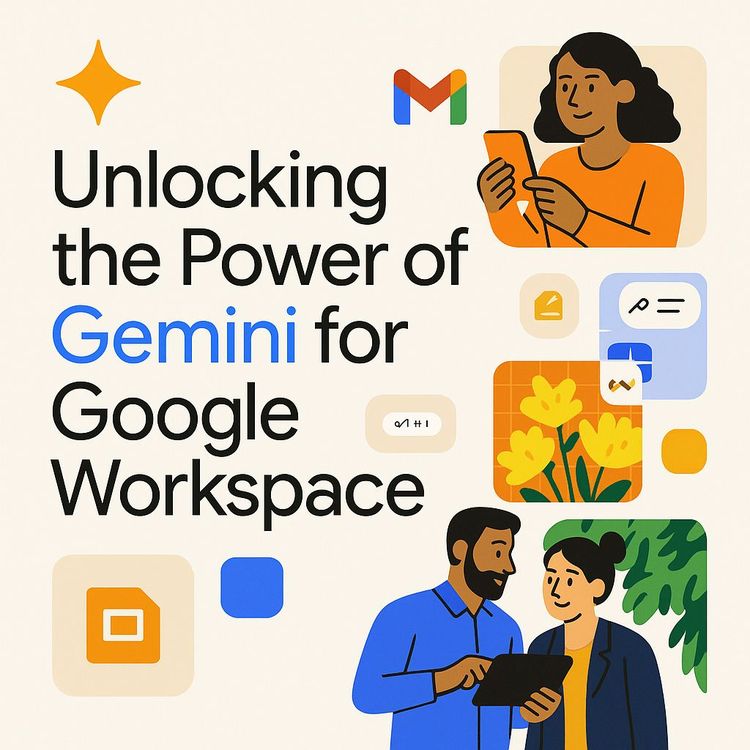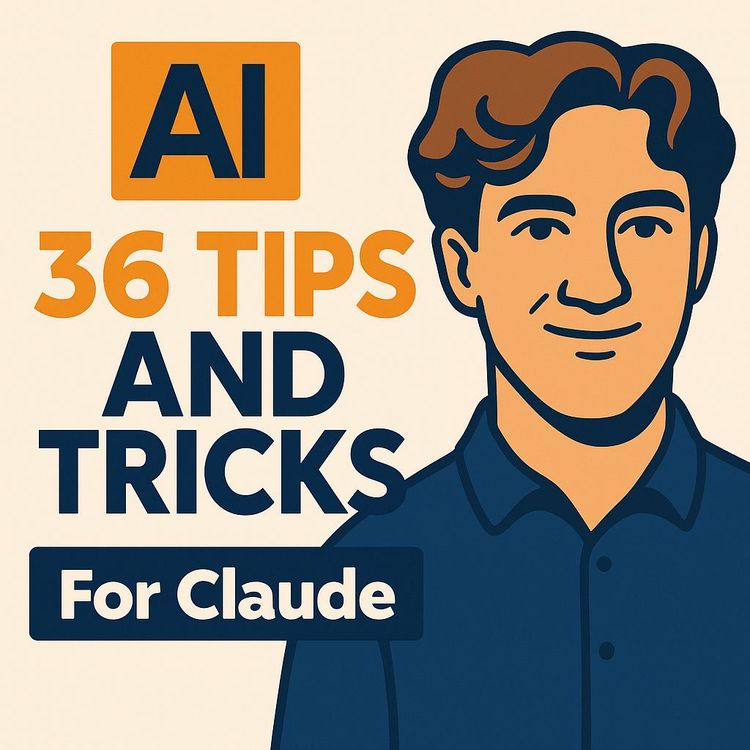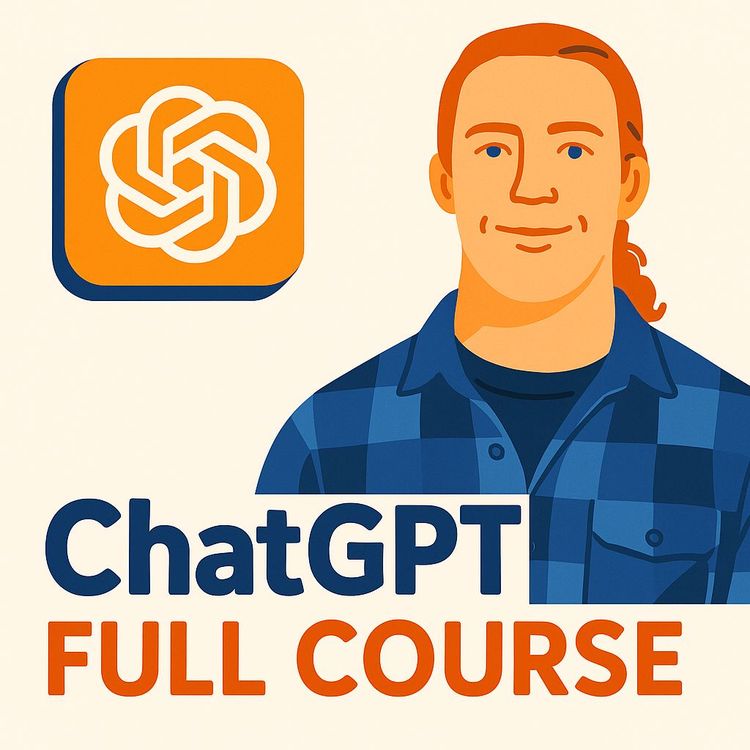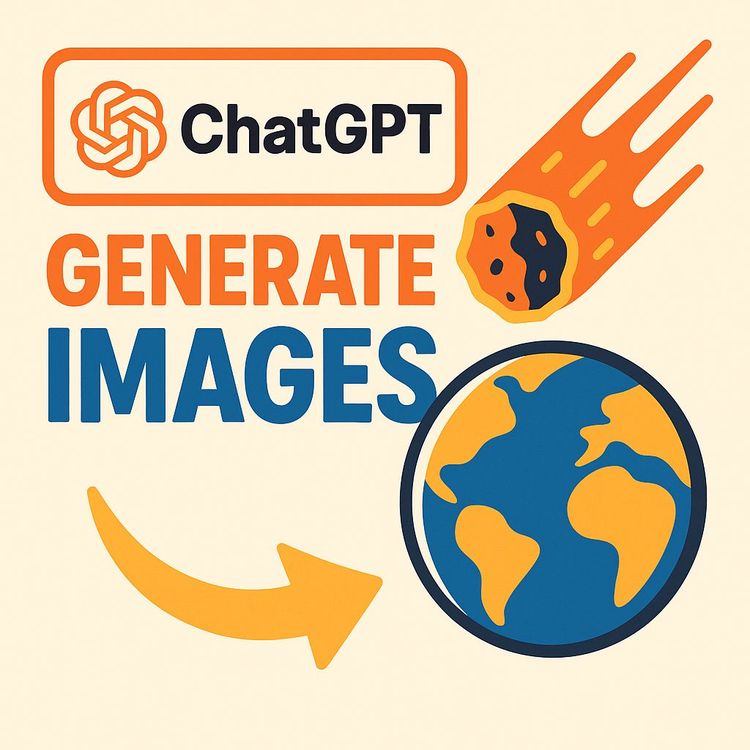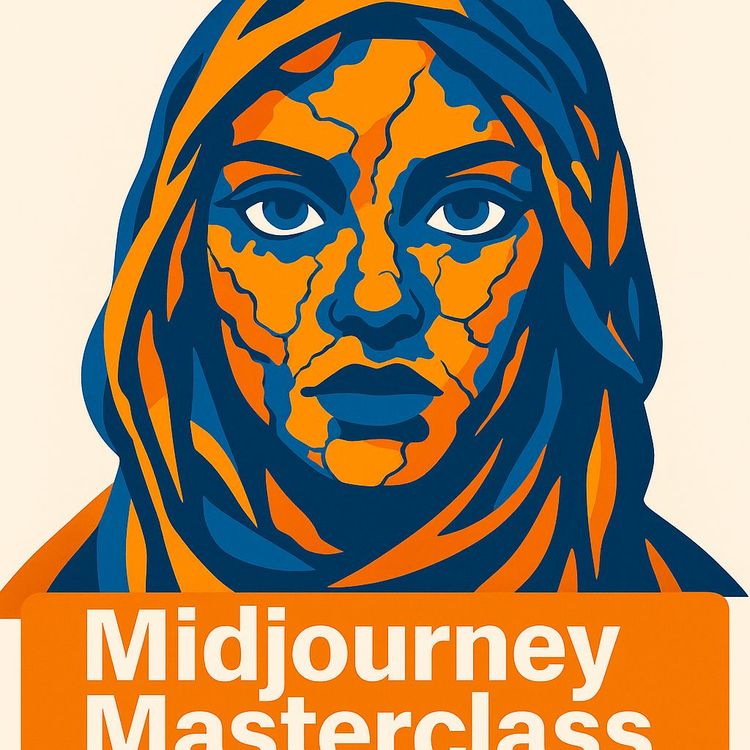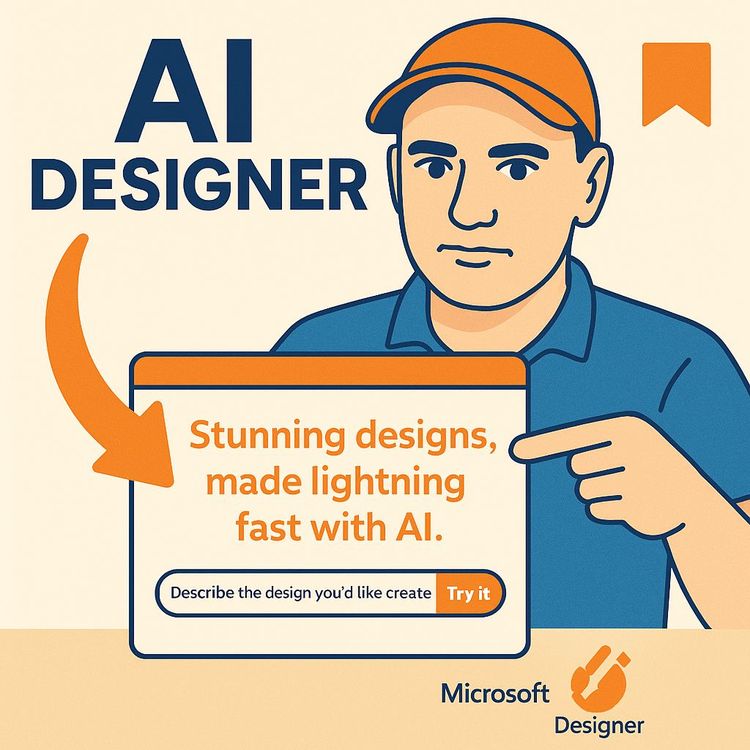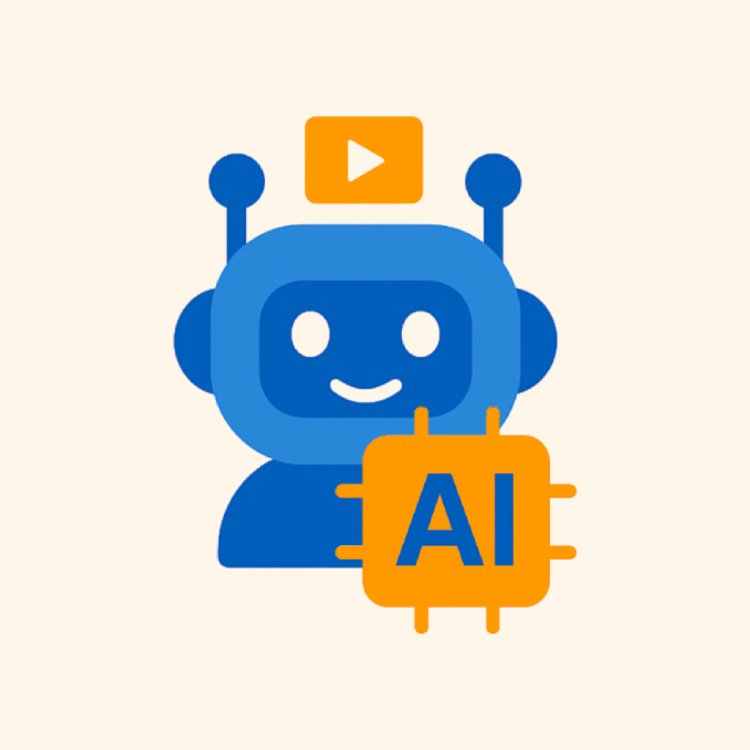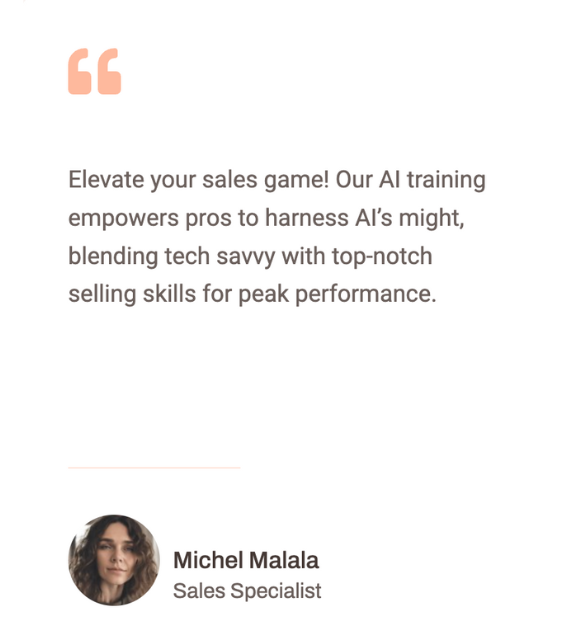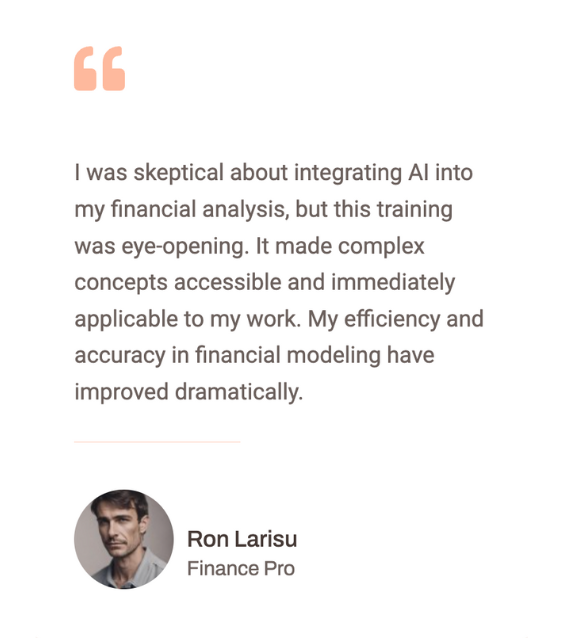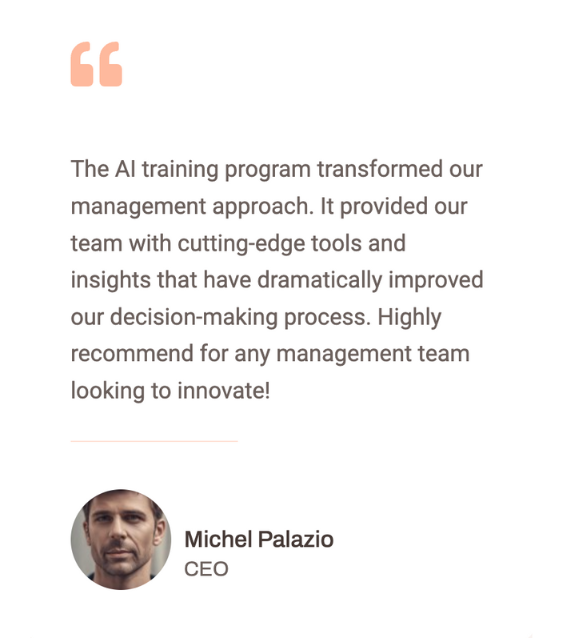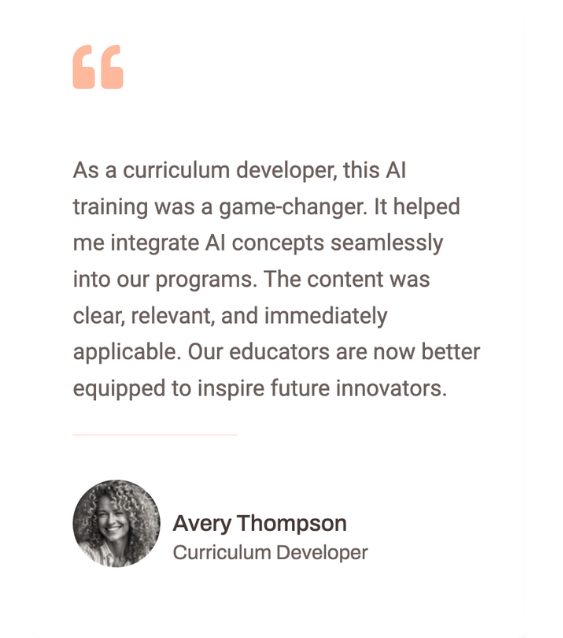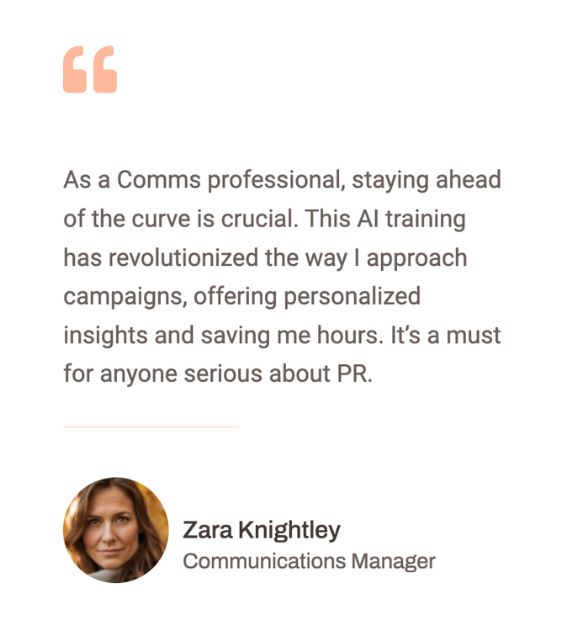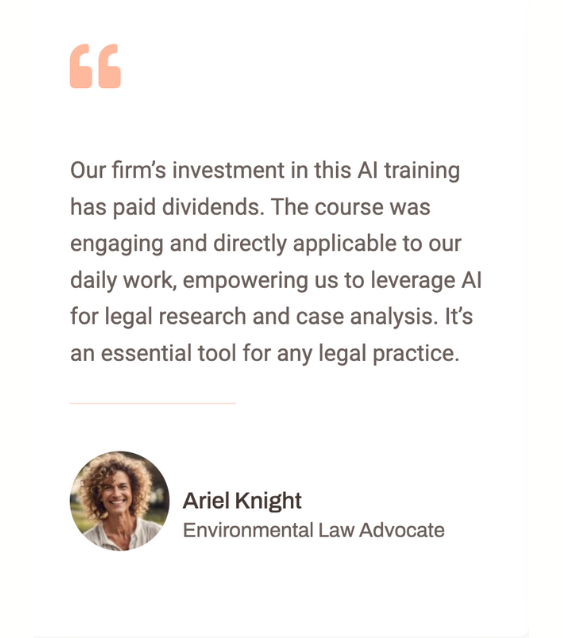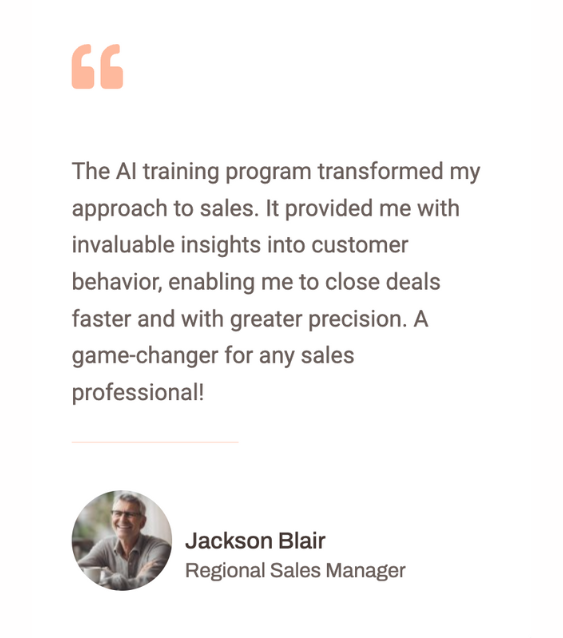AI Prompts for Medical Students: Boost Learning, Productivity, and Clinical Skills (Video Course)
Discover how AI can transform your medical school experience,streamlining study, boosting productivity, and sharpening clinical skills. Learn practical prompts and proven frameworks to save time, deepen your learning, and stay ahead in a demanding field.
Related Certification: Certification in Applying AI Prompts to Enhance Medical Learning and Clinical Practice
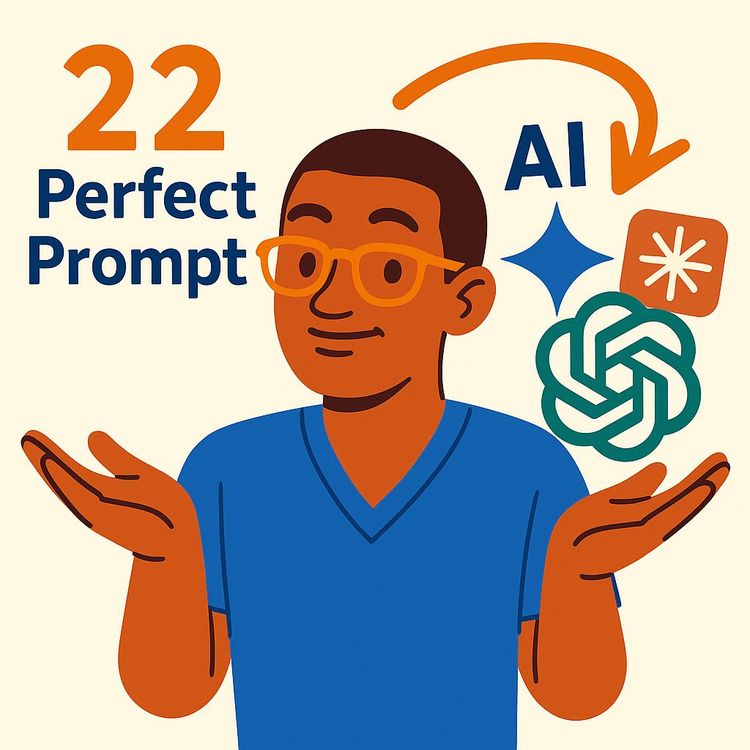
Also includes Access to All:
What You Will Learn
- Master the RTFC prompt framework (Role, Task, Format, Context)
- Create AI-generated flashcards, practice questions, and spaced-repetition schedules
- Use ChatGPT, Claude, Gemini, NotebookLM, and Gamma for study, presentation, and research tasks
- Integrate AI into clinical workflows: SOAP notes, case summaries, and differential generation
- Apply ethical guardrails and privacy best practices when using AI in medicine
Study Guide
Introduction: Why AI Prompts Will Make Your Life SO EASY in Medical School
Medical school is a relentless test of your knowledge, stamina, and adaptability. Every lecture, rotation, and exam challenges you to learn more, faster, and with greater depth. In this environment, Artificial Intelligence (AI) is no longer a distant promise,it's an immediate advantage. This course is your blueprint for harnessing AI tools like ChatGPT, Claude, Gemini, and more to reimagine how you study, organise, and excel in medicine.
What you'll learn here isn't just about using new technology. It's about mastering the art of prompt engineering, integrating AI as your tireless assistant, and unlocking new levels of efficiency, understanding, and clinical reasoning. You'll discover the exact frameworks, prompts, and tools that set top students apart, while always staying grounded in the ethical guardrails that protect your patients and your integrity.
If you're ready to work smarter,not just harder,and ensure you're on the right side of the widening AI gap in medicine, this is your starting line.
The Transformative Power of AI in Medical Education
AI is already woven into the fabric of modern medicine. It's not an experiment for the future. Right now, students and clinicians who leverage AI are gaining an undeniable edge. Let's break down why AI isn't just helpful,it's becoming indispensable.
AI as Your Personal Assistant
Imagine having a tutor who never sleeps, a research assistant who never complains, and a mentor who tailors every explanation to your exact needs. That's what AI tools like ChatGPT, Claude, and Gemini offer: always-on support for studying, organising, and clinical reasoning. For example, you can ask ChatGPT to explain the pathophysiology of heart failure using analogies that suit your level, or have Claude break down a dense research article into actionable clinical takeaways.
The Widening Gap: Why AI Literacy Matters
A clear divide is forming. Students who use AI are studying more efficiently, understanding concepts at a deeper level, and outperforming their peers on rotations and exams. Those who ignore AI are at risk of falling behind, not because they're less capable, but because they're missing out on a powerful amplifier of learning and productivity.
AI Amplifies, Never Replaces
AI isn't about shortcutting the hard work or dulling your critical thinking. It's about focusing your energy where it counts. For instance, instead of spending hours organising your notes, AI can generate flashcards or a study schedule, freeing you to dive deeper into clinical reasoning or hands-on practice. The human element,your empathy, judgment, and expertise,remains irreplaceable. AI simply helps you get there faster and with less friction.
Examples:
- You use Gemini to convert a complex lecture into a visual summary before your next tutorial, giving you a head start.
- During a busy rotation, you dictate a voice memo about a patient case and have Notebook LM turn it into a structured action list, so you never miss a detail.
Essential Guardrails and Ethical Considerations
With great power comes great responsibility. AI can accelerate your growth, but only if you use it wisely. Here are the guardrails that every medical student and clinician must respect.
Verification is Non-Negotiable
Always double-check any medical information AI provides, especially if it could affect patient care. Use reliable sources like UpToDate or peer-reviewed literature to confirm details. If AI suggests a diagnosis or management plan, treat it as the starting point,not the final word.
AI is an Assistant, Not a Doctor
Think of AI as the smartest assistant you've ever had, but never as a licensed medical expert. Rely on your evidence-based medicine training and clinical judgment. For example, if Claude drafts a SOAP note, make sure you validate all findings and plans before sharing or acting on them.
Critical Thinking Remains Your Core Strength
No AI can replace your ability to synthesise information, weigh evidence, or empathise with patients. Use AI to handle the repetitive or time-consuming tasks so you can focus on what truly matters: your growth as a thoughtful, ethical physician.
Examples:
- After AI summarises a new guideline, you review the full source to check for nuances or context that might not be captured in the summary.
- You use AI to suggest differential diagnoses, but you always cross-check with your own clinical reasoning and the patient's full history.
Best Practice Tip: Never enter protected patient information into any AI tool. Always anonymise data and respect privacy standards.
The RTFC Framework: Engineering Powerful AI Prompts
The secret to unlocking AI's full potential is knowing how to ask. The RTFC framework,Role, Task, Format, Context,turns generic requests into laser-focused prompts that produce relevant, high-quality output.
Role
Tell the AI who it should "be." For example, "Act as an orthopedic surgery attending," or "You're a medical educator helping a third-year student."
Task
Be explicit about what you want. "Create 10 practice questions," or "Summarise this article's key findings and critique its methodology."
Format
Specify the output structure. Maybe you want bullet points, a step-by-step guide, or a simulated conversation.
Context
Give background about your level or needs. "I'm prepping for my surgery rotation and need high-yield mnemonics," or "Focus on what I need to know for the USMLE Step 2."
Example of Weak vs. Strong Prompt:
Weak: "Tell me about heart failure."
Strong: "Act as a cardiology attending teaching a medical student. Explain heart failure pathophysiology using simple analogies and real world examples that would help me understand it for my internal medicine rotation. Focus on the concepts I'll need to ace an exam on this topic."
Applying this framework is a game-changer for every AI use case in medical school.
Examples:
- For creating flashcards: "Act as a USMLE tutor. Turn my lecture notes into active recall flashcards, each with a question and answer, focusing on clinical application. I'm a second-year medical student reviewing cardiology."
- For research: "Take on the role of a journal editor. Outline a research paper about the effectiveness of telemedicine in rural clinics. Format the outline according to standard IMRAD structure. Assume the audience is a general medical readership."
AI Language Models for Medical School: ChatGPT, Claude, Gemini
Different AI models bring different strengths to the table. Understanding when and how to use each is key to maximising your efficiency and depth of learning.
ChatGPT
- Highly user-friendly with a broad medical knowledge base.
- Ideal for general medical questions, conversational learning, and creating custom GPTs, such as a personalised "Orthotutor" for surgery explanations.
Example: You ask, "Act as an infectious disease specialist. Explain the difference between viral and bacterial meningitis for a med student, using analogies and clinical pearls." ChatGPT delivers a clear, exam-focused answer.
Claude
- More conservative and detailed with medical advice.
- Excels at handling large documents,perfect for uploading multiple research papers or book chapters for systematic breakdown.
Example: You upload three recent studies on a new cancer therapy and prompt, "Act as a clinical researcher. Synthesise the findings, highlight any conflicts, and suggest areas for further investigation." Claude delivers a methodical review.
Gemini
- Seamlessly integrates with Google services and excels at visual content.
- Great for creating presentations or turning complex data into visuals.
Example: After a long day, you paste your notes into Gemini and prompt, "Act as a medical educator. Create a visual summary of the renal system suitable for a class presentation, focusing on high-yield points." Gemini generates a slide deck, saving you hours.
Best Practice Tip: Try each tool for different tasks and see which matches your workflow and learning style.
AI for Studying and Deep Learning
AI is a force multiplier when it comes to absorbing, retaining, and applying complex medical knowledge. Here’s how you can put it to work across the spectrum of learning tasks:
1. Custom AI Tutor (e.g., Orthotutor)
You can create a specialised AI tutor by defining its role and your learning goals.
Example 1: "Act as an orthopedic surgery attending. Teach me fracture classification systems using step-by-step explanations and real-world scenarios. Target your teaching to a third-year student on an ortho rotation."
Example 2: "You're a nephrology expert. I have trouble understanding acid-base disorders. Break down the core concepts with analogies and diagrams, focusing on what I need for USMLE Step 1."
Practical Application: Set up a custom GPT or prompt template for each specialty, so you always have a tailored mentor on hand.
2. Instant Flashcard Generation
Transform your lecture notes or textbook chapters into active recall flashcards.
Example 1: "Act as a USMLE flashcard generator. Convert the following cardiology notes into 15 Q&A flashcards emphasising clinical application."
Example 2: "You're an anatomy tutor. Make flashcards from this list of muscles, focusing on origin, insertion, innervation, and function."
Best Practice: Use these flashcards in Anki or another spaced repetition tool to optimise retention.
3. Practice Question Generation
AI can generate board-style questions with detailed explanations.
Example 1: "Act as a Step 2 question writer. Create 5 clinical vignettes on diabetic ketoacidosis, each with an answer and rationale."
Example 2: "You're a pediatrics attending. Write 10 multiple-choice questions on congenital heart disease for a med student, including explanations."
Tip: Review the questions for accuracy before using them for high-stakes prep.
4. Summarising Dense Medical Literature
Extract what matters from long articles or guidelines.
Example 1: "Act as a clinical journal club moderator. Summarise this article's main findings, critique its methodology, and list any practice-changing points."
Example 2: "You're a resident reviewing guidelines. Give me the key clinical takeaways from these new hypertension recommendations, focusing on changes from previous versions."
Practical Application: Save time on literature review and stay current without information overload.
5. Creating Memorable Learning Tools: Mnemonics, Analogies, Frameworks
AI can invent memorable mnemonics or frameworks to speed up recall.
Example 1: "Act as a memory coach. Create a mnemonic for the causes of nephrotic syndrome in children."
Example 2: "You're a neurology tutor. Give me an analogy to help remember the cranial nerve functions."
Best Practice: Test new mnemonics in practice questions to see if they stick.
6. Simulating Clinical Teaching ("Pimping")
Experience progressive Q&A sessions to mimic real-world clinical teaching.
Example 1: "Act as an attending on rounds. Ask me progressively tougher questions about COPD, giving hints and explanations as needed."
Example 2: "You're a senior resident. Test my knowledge on sepsis with a series of rapid-fire questions, then explain the reasoning behind each answer."
Tip: Use this to build confidence before actual rounds.
7. Generating Spaced Repetition Schedules
AI can plan your review cycles based on memory science.
Example 1: "Act as a learning coach. Generate a 4-week spaced repetition schedule for microbiology topics, optimised for long-term retention."
Example 2: "You're an education specialist. Help me build a review plan for pharmacology, spacing out topics based on my weak areas."
Practical Application: Integrate this schedule into your digital calendar for accountability.
8. Drafting Custom Study Schedules
Balance your study with clinical duties and personal life.
Example 1: "Act as a study coach. Create a daily plan for Step 1 prep that includes 2 hours of question practice, 1 hour of flashcards, and time for exercise."
Example 2: "You're a residency advisor. Design a weekly study schedule for my surgery rotation, focusing on must-know procedures and emergencies."
Best Practice: Adjust AI-generated plans as your real-world commitments shift.
AI for Productivity and Time Management
AI isn't just about learning,it’s about making your workflow frictionless so you can focus on what matters most. Here’s how you can use it to streamline your day:
9. Prioritising Tasks
Turn your chaotic to-do list into a focused action plan.
Example 1: "Act as a productivity coach. Organise these 12 tasks into a prioritised action list with time estimates, highlighting urgent vs. important items."
Example 2: "You're my executive assistant. I have research, clinical notes, and email follow-ups. Which should I do first, and why?"
Practical Application: Use this before each study session or shift for instant clarity.
10. Voice Memos to Action Items
Convert your on-the-go thoughts into structured tasks.
Example 1: "Act as a scribe. Here’s a voice memo about a patient handoff,turn it into bullet-point action items."
Example 2: "You're my personal assistant. I recorded my goals for the week,summarise them into a checklist."
Best Practice: Use this for quick documentation during busy clinical days.
11. Professional Email Drafting
AI can nail the tone and format for every situation.
Example 1: "Act as a residency advisor. Draft an email to my program director requesting time off for a conference, keeping the tone professional and respectful."
Example 2: "You're a med student applying for research. Write an introductory email to a faculty member, expressing my interest and summarising my background."
Tip: Always personalise and proofread before sending.
12. Automating Recurring Tasks
Templates save you time on repetitive documentation.
Example 1: "Act as a surgical resident. Create a reusable template for pre-op case presentations, including all necessary sections."
Example 2: "You're a clinic manager. Make a checklist for prepping patients for minor procedures."
Practical Application: Store these templates for quick access during busy shifts.
AI for Research and Academic Writing
AI can turbocharge your research workflow, from literature review to manuscript polishing.
13. Literature Review Summaries
Cut through the noise and focus on what matters.
Example 1: "Act as a research assistant. Summarise the key findings from these five studies on heart failure, note any conflicting data, and suggest gaps for future research."
Example 2: "You're a systematic reviewer. Critique the methodology of this meta-analysis and highlight any limitations."
Best Practice: Use these summaries as a starting point, not a substitute for your own critical review.
14. Research Paper Outlines
Get a head start on structuring complex projects.
Example 1: "Act as a journal editor. Outline a research paper on antibiotic stewardship in hospitals, using the IMRAD (Introduction, Methods, Results, Discussion) format."
Example 2: "You're a grant writer. Draft an outline for a proposal investigating telemedicine’s impact on rural health outcomes."
Tip: Customise the outline to match your supervisor’s expectations.
15. Editing and Polishing Writing
AI can elevate your writing for clarity, tone, and professionalism.
Example 1: "Act as a copy editor. Improve the clarity and impact of this personal statement for residency application."
Example 2: "You're a scientific writer. Edit this abstract to meet the standards of a high-impact journal, ensuring correct medical terminology."
Best Practice: Review AI edits to maintain your personal voice.
16. Data Interpretation Help
Decode complex statistics and clinical significance.
Example 1: "Act as a biostatistician. Explain the results of this Kaplan-Meier survival analysis in plain language for clinicians."
Example 2: "You're an epidemiologist. Interpret the p-values and confidence intervals in this study for a medical student."
Practical Application: Use AI explanations to prep for research presentations or journal club.
AI for Clinical and Career Applications
AI isn't just for students,it can enhance your clinical work and help you plan your career trajectory.
17. Case Presentation Summaries
Organise patient cases into clear, concise formats.
Example 1: "Act as a chief resident. Summarise this patient's case into a focused oral presentation for rounds, highlighting pertinent positives and negatives."
Example 2: "You're an intern. Turn my written notes on a complex cardiac case into a one-minute summary for handoff."
Tip: Always review for accuracy and remove any protected health information.
18. SOAP Note Organisation
Structure your documentation for clarity and completeness.
Example 1: "Act as a clinician. Organise this patient history and exam into a professional SOAP note, excluding any identifiers."
Example 2: "You're a medical scribe. Draft a SOAP note for a follow-up asthma visit based on this data."
Best Practice: Double-check for completeness and compliance with privacy standards.
19. Differential Diagnosis Practice
Sharpen your reasoning with ranked lists and explanations.
Example 1: "Act as a clinical reasoning tutor. Given this patient scenario, generate a ranked differential diagnosis with supporting evidence and suggest additional tests."
Example 2: "You're a senior resident. Help me work through a differential for acute abdominal pain in a 45-year-old, listing the most likely causes first."
Practical Application: Use AI-generated differentials as practice, but always think critically before applying in real cases.
20. CV Optimisation
Stand out in competitive applications.
Example 1: "Act as a career coach. Review my CV and suggest improvements, highlighting missing skills or experiences for a surgical residency."
Example 2: "You're an admissions advisor. Help me rephrase my leadership experiences to show impact and initiative."
Tip: Customise AI suggestions to reflect your authentic story.
21. Medical News Summaries
Stay up to date without the overwhelm.
Example 1: "Act as a medical journalist. Summarise the latest guidelines on stroke management, highlighting what's changed and why it matters."
Example 2: "You're a specialty advisor. Give me a digest of recent research breakthroughs in oncology, focusing on clinical relevance."
Practical Application: Use summaries for journal club, team meetings, or personal growth.
22. Specialty Learning Plans
Map out your residency or fellowship preparation.
Example 1: "Act as a residency mentor. Create a comprehensive learning plan for orthopedic surgery, including high-yield topics, recommended resources, and a timeline."
Example 2: "You're an academic advisor. Help me plan my path to a career in pediatrics, including mentorship opportunities and key milestones."
Tip: Adjust plans to suit your evolving interests and commitments.
Bonus AI Tools: Notebook LM and Gamma
Beyond language models, these tools unlock new modes of learning and productivity:
Notebook LM
- Converts documents, voice memos, and even videos into different formats.
- Perfect for auditory learners: turn a dense surgical guide into a podcast-style discussion to review on your commute.
Example 1: After dictating notes during rounds, you have Notebook LM turn them into a Q&A format for later review.
Example 2: Upload a research article and generate a podcast summary to reinforce learning during a workout.
Gamma
- Automates the creation of professional presentations from any content.
- Saves hours on slide formatting and design, freeing you to focus on substance.
Example 1: Paste your research abstract into Gamma and instantly produce a slide deck ready for journal club.
Example 2: Use Gamma to turn your flashcards and mnemonics into a visual review session for your study group.
Best Practices for AI Integration in Medical School
- Always verify AI-generated content against trusted sources. Use UpToDate, peer-reviewed journals, or guidelines as your reference points.
- Protect patient privacy. Anonymise all clinical data before inputting into any AI tool.
- Tailor AI output to your learning style. Experiment with different formats,text, audio, visual,to see what sticks.
- Think of AI as your brainstorming partner, not your final authority. Use its output as a launching pad for deeper exploration.
- Continuously refine your prompts. The more specific and contextualised your instructions, the higher the quality of the AI’s response.
Conclusion: The Evolving Medical Student,Thrive, Don’t Just Survive
AI is no longer a bonus for the tech-savvy,it's a requirement for anyone who wants to excel in medicine. The tools and frameworks you've learned here are your keys to studying efficiently, mastering clinical reasoning, and building a career that adapts to constant change.
Remember: The most successful medical students and clinicians aren't those who work the hardest, but those who work the smartest. AI is your accelerator, not your replacement. Use it to free your mind for what only you can do,think critically, empathise, and make a lasting impact on your patients and your profession.
Start experimenting with these prompts and tools today. As you see your productivity and understanding soar, you'll realise: it's not just about surviving medical school,it's about thriving in a profession that's evolving faster than ever.
Frequently Asked Questions
This FAQ is crafted to answer the most common and insightful questions about using AI prompts to streamline studying, organisation, and clinical work throughout medical school. Whether you're just getting started with AI or want to deepen your expertise, these questions address both foundational concepts and advanced strategies for integrating AI into your medical education and professional life.
What is the primary role of AI in medical education and practice?
AI serves as a personal tutor, assistant, and mentor, amplifying learning and productivity for medical students and professionals.
It helps you study more efficiently, understand complex concepts, and perform better in clinical settings. While AI chatbots have demonstrated high-quality, empathetic responses in some studies, their role is to support,not replace,critical thinking and the human touch in medicine. Use AI to enhance your learning, streamline tasks, and sharpen your clinical reasoning, always keeping your judgment at the center.
What are the key components of an effective AI prompt in a medical context?
The "RTFC" framework,Role, Task, Format, and Context,ensures your prompt yields precise and useful responses.
- Role: Define the persona for the AI (e.g., “Act as an orthopedic surgery attending”).
- Task: Specify what you want done (e.g., “Create 10 practice questions on fluid management”).
- Format: State how you want the answer presented (“In bullet points” or “Explain it like I’m a patient”).
- Context: Add details about your learning level or goal (“I’m preparing for my third-year surgery rotation”).
What are some practical applications of AI for studying and learning in medicine?
AI can accelerate your learning through custom tutors, rapid flashcard creation, practice questions, and more.
- Custom AI Tutors: Generate explanations tailored to your level and style.
- Flashcard Generation: Instantly turn notes into active recall flashcards for spaced repetition.
- Practice Questions: Create board-style questions with detailed rationales.
- Literature Summaries: Break down dense research into actionable clinical takeaways.
- Mnemonic and Analogy Creation: Build memorable tools for long-term retention.
- Simulation of Clinical Teaching: Engage in case-based Q&A to strengthen reasoning.
- Study Schedules: Design optimised review routines based on your goals.
How can AI enhance productivity and organisation for medical professionals?
AI helps manage your workload by automating and organising daily tasks, freeing up mental space for higher-level thinking.
- Task Prioritisation: Break down big projects into actionable steps with time estimates.
- Email Drafting: Compose professional communications efficiently, with tone and structure tailored to your needs.
- Recurring Task Templates: Create reusable templates for case presentations or patient handoffs.
- Voice Memo Conversion: Turn spoken notes into structured task lists.
How does AI assist with academic goals, research, and writing in medicine?
AI streamlines research, writing, and critical analysis, helping you produce higher-quality academic work in less time.
- Literature Synthesis: Summarise findings, highlight controversies, and suggest research gaps.
- Paper Outlining: Generate detailed outlines with logical flow for research projects.
- Editing and Polishing: Refine drafts for clarity, professionalism, and medical accuracy.
- Statistical Interpretation: Explain complex statistical results in clear, clinical language.
What are some clinical and career-related applications of AI?
AI supports clinical efficiency and career development through automation and analysis.
- Case Summaries: Organise patient data into concise, structured presentations.
- SOAP Note Assistance: Draft and structure clinical notes (without including identifiable patient information).
- Differential Diagnosis Practice: Rank possible diagnoses and explain the reasoning behind each choice.
- CV Optimisation: Analyse and enhance your CV for residency or fellowship applications.
- Medical News Summaries: Stay current by having AI summarise new guidelines or research in your specialty.
- Residency Learning Plans: Build comprehensive study and experience plans tailored to your career goals.
What are the important guardrails and ethical considerations when using AI in medicine?
Always verify AI-generated information, use the technology as an assistant, and protect patient privacy at all times.
- Check Information: Double-check any advice or data through trusted, current medical resources.
- Assistant, Not Authority: AI is a helpful tool, but your clinical judgment is irreplaceable.
- Protect Privacy: Never input protected health information or anything that could identify a patient.
Are there any specific AI tools recommended for medical professionals, beyond general chatbots?
ChatGPT, Claude, Gemini, NotebookLM, and Gamma each offer unique strengths for medical learners and professionals.
- ChatGPT: Great for conversational learning and custom knowledge bases.
- Claude: Ideal for detailed, cautious responses and handling large documents.
- Gemini: Best for integrating with Google tools and working with visual content.
- NotebookLM: Converts readings and voice notes into new learning formats.
- Gamma: Automates the creation of professional presentations.
Is there really a growing gap between students who use AI and those who don’t?
The difference in performance and efficiency between students who use AI skillfully and those who don’t is widening quickly.
AI-literate students are able to study more effectively, access better resources, and save time on repetitive tasks. This gives them a clear advantage in exams, clinical rotations, and research productivity. As AI becomes more common in medicine, those who avoid these tools risk falling behind their peers.
Does using AI in medical education risk replacing the human element or empathy in medicine?
AI is meant to amplify your effort and free up time for deeper learning,not to replace empathy, communication, or clinical judgment.
While AI can provide quick answers and automate routine tasks, it cannot replicate the personal connection, intuition, or ethical reasoning that define great clinicians. Use AI to handle the rote work so you can focus more on meaningful patient interactions and critical thinking.
What are common misconceptions about using AI in medical school?
Some believe AI is a shortcut or a replacement for hard work, but it’s actually a tool that rewards thoughtful use and strategy.
AI doesn’t do your studying for you; it accelerates understanding when you engage with it actively. Another misconception is that it always provides accurate information,AI can “hallucinate” or give plausible-sounding but incorrect answers, so verification is crucial. Finally, some fear AI will deskill learners, but when used properly, it can deepen understanding by encouraging active questioning and exploration.
What are potential challenges or obstacles when integrating AI into my medical studies?
Obstacles include information overload, overreliance, and the risk of inaccurate answers.
You might feel overwhelmed by the volume of AI-generated material, or be tempted to accept answers without critical review. Privacy is another concern,accidentally including sensitive data in prompts can breach ethical standards. To overcome these, work in focused sessions, always verify information, and keep prompts free of personal patient details.
How does AI support evidence-based learning strategies like active recall and spaced repetition?
AI can instantly create flashcards and spaced repetition schedules tailored to your curriculum and knowledge gaps.
Upload lecture notes, and AI will generate active recall questions to test your memory. Ask for a 30-day review plan, and it will space out your practice in line with memory science. This personalisation means every review session targets your weak spots, making learning stickier and more efficient.
What is the benefit of simulating clinical “pimping” or bedside teaching with AI?
AI can act as an always-available attending, challenging you with progressively harder questions and clinical reasoning scenarios.
This helps you prepare for real-world teaching moments and exams, offering instant feedback, explanations, and hints. For example, you can request a series of cardiovascular case questions, each one building on the last, with clinical pearls and rationales provided.
Beyond summarising, how can AI help me critically analyse research articles?
AI can highlight conflicting study results, point out research gaps, critique methodologies, and suggest areas for future investigation.
Instead of just summarising, you might ask, “Compare the findings of these three studies on hypertension management and identify limitations or unanswered questions.” This leads to deeper understanding and more insightful literature reviews.
How can I use AI to generate high-yield flashcards from my lecture notes?
Paste your lecture notes into the AI and prompt it to create question-answer flashcards focused on key facts and clinical applications.
You can specify the format (“USMLE-style” or “simple definitions”) and ask for explanations on the back of each card. This supports active recall and can be exported to flashcard apps like Anki for spaced repetition.
Can you give an example of applying the RTFC framework for a specific AI prompt?
RTFC in action: “You’re a cardiology attending (Role). Create 10 practice questions on heart failure (Task). Format them as multiple choice with explanations for each answer (Format). I’m preparing for my third-year internal medicine rotation (Context).”
This structure tells the AI exactly what you need, resulting in precise, relevant output.
How do I decide which AI tool (ChatGPT, Claude, Gemini, etc.) to use for a specific medical task?
Choose based on your goal and the tool’s unique strengths:
- ChatGPT: Great for conversational Q&A, flashcards, custom tutors, and creative prompts.
- Claude: Better for uploading and breaking down large documents or when you want cautious, detailed advice.
- Gemini: Best for presentations and visual learning, especially if you already use Google products.
How do I ensure patient privacy and confidentiality when using AI for clinical documentation?
Only include de-identified clinical information,never paste names, birthdates, medical record numbers, or any protected health information into AI prompts.
Focus on summarising clinical findings, reasoning, or teaching points. For example, write, “A 60-year-old male presents with chest pain and shortness of breath,” but omit any personal details. This keeps you compliant with privacy standards and ethical guidelines.
How can AI help me prepare my CV and personal statement for residency applications?
AI can review your CV, identify missing elements, suggest ways to highlight your experiences, and polish your writing for clarity and impact.
Paste your draft into the tool and ask for feedback on structure, language, or alignment with your specialty’s expectations. For personal statements, AI can help you refine your story and ensure your narrative flows smoothly.
What are examples of recurring medical tasks that AI can automate?
AI can create reusable templates for:
- Case presentations
- Daily patient progress notes
- Surgical “time-out” checklists
- Pre- and post-op instructions
- Standard patient education materials
How can AI help me build a comprehensive learning plan for a specific specialty?
AI can outline key topics, recommend resources, suggest timelines, and advise on experiences to seek for specialties like cardiology or orthopedics.
You might prompt, “Create a 3-month study plan for starting an orthopedic surgery rotation, including high-yield topics and hands-on practice recommendations.” The AI will break down the skills, readings, and milestones to help you prepare strategically.
Are there limitations or risks to relying on AI for medical advice or learning?
AI can make errors, lack up-to-date references, or “hallucinate” plausible but inaccurate information.
Always cross-check AI outputs with trusted resources and use your own clinical reasoning. Treat AI suggestions as starting points for your own research, not as definitive guidance,especially when patient safety is involved.
How does AI support evidence-based medicine (EBM) in clinical practice or study?
AI can synthesise and summarise large amounts of literature, highlight guidelines, and suggest evidence-backed next steps.
For example, you might ask, “Summarise the latest EBM guidelines for hypertension management,” and receive a concise, referenced answer. However, you should verify recommendations and stay alert to new evidence that may not be included in the AI’s training data.
What are “Custom GPTs,” and how can I create one for my study needs?
Custom GPTs are tailored versions of ChatGPT designed for specific subjects, roles, or tasks.
You can create a Custom GPT that always responds as a pharmacology tutor, for example, or one that focuses on generating clinical mnemonics. This saves you time by setting preferences in advance, so every session is optimised for your goals.
What’s the best way to use AI for literature reviews or research projects?
Provide the AI with the articles (or abstracts) you’re reviewing and prompt it to:
- Summarise key findings and points of agreement/disagreement
- Critique methodologies
- Highlight research gaps
- Suggest future investigation areas
How do I use AI to turn my voice memos into actionable items?
Upload or transcribe your voice memo and prompt the AI to extract and organise the information into a to-do list, priorities, or follow-up actions.
For instance, after dictating a patient summary, you can ask, “Convert this memo into a checklist of next steps for tomorrow’s rounds.” This helps capture insights without losing important details in the shuffle.
Can AI help me keep up with the latest medical news and guidelines?
AI can summarise new research, guidelines, and major developments in your field, saving you hours of reading.
Prompt with, “Summarise the most important new guidelines in cardiology this month” or “What are the key findings from the latest diabetes trials?” This approach keeps your knowledge current and focused on what’s most clinically relevant.
How can I improve the quality of AI’s responses if I’m not satisfied with the initial answer?
Refine your prompt by adding more details about the role, task, format, or context, and specify any preferences for depth or complexity.
If the answer is too vague, ask for more specifics or request examples. For deeper learning, prompt, “Explain as if I’m a first-year medical student” or “Provide clinical case examples.” The more you iterate, the better the results.
Are there ethical dilemmas unique to using AI in medical education?
Potential dilemmas include academic honesty, overreliance, and unintentional sharing of sensitive data.
Using AI to complete assignments without your own input can cross ethical lines. Always use AI as a support, not a substitute for your own work. Stay vigilant about privacy and avoid uploading any content that could identify real patients or breach institutional policies.
Can AI facilitate collaborative learning or group study sessions?
AI can structure group study agendas, generate discussion questions, or act as a “moderator” by quizzing the group on clinical scenarios.
For example, you could ask AI to create a set of rapid-fire questions for your study group or summarise the group’s discussion points into a shared document. This keeps sessions focused and productive.
How can AI help with career planning and long-term professional growth in medicine?
AI can analyse your current skills and experiences, suggest areas for development, and provide resources for your chosen specialty or interest area.
You might prompt, “What additional research or volunteer experiences should I pursue to strengthen my application for dermatology residency?” or “Create a 5-year career development plan based on my CV.” AI’s feedback can clarify your next steps.
Are these AI tools and strategies helpful for international medical students or graduates?
Yes, AI can help bridge knowledge gaps, adapt to new testing formats, and improve communication skills for IMGs.
For example, you can ask AI to explain USMLE question styles, summarise cultural differences in patient care, or help draft emails and personal statements tailored to US or UK residency programs.
Are there any cost or accessibility concerns with using AI tools in medical school?
Some advanced AI tools require subscriptions, but many offer free tiers or institutional access.
Explore free versions first (e.g., ChatGPT’s basic plan or Google’s Gemini) and check if your school provides access to premium tools. Open-source alternatives may be available for research or writing assistance, though they might have fewer features.
How can I stay updated as AI technology and best practices evolve in medical education?
Regularly seek out new features, tools, and prompt strategies by following trusted educators, joining AI-in-medicine communities, and attending workshops or webinars.
Subscribe to newsletters, join relevant forums, and share experiences with peers to collectively refine your approach.
Certification
About the Certification
Get certified in AI-Driven Prompting for Medical Students,demonstrate expertise in streamlining study, enhancing clinical reasoning, and applying practical AI prompts to boost productivity and achieve superior learning outcomes in clinical settings.
Official Certification
Upon successful completion of the "Certification in Applying AI Prompts to Enhance Medical Learning and Clinical Practice", you will receive a verifiable digital certificate. This certificate demonstrates your expertise in the subject matter covered in this course.
Benefits of Certification
- Enhance your professional credibility and stand out in the job market.
- Validate your skills and knowledge in cutting-edge AI technologies.
- Unlock new career opportunities in the rapidly growing AI field.
- Share your achievement on your resume, LinkedIn, and other professional platforms.
How to complete your certification successfully?
To earn your certification, you’ll need to complete all video lessons, study the guide carefully, and review the FAQ. After that, you’ll be prepared to pass the certification requirements.
Join 20,000+ Professionals, Using AI to transform their Careers
Join professionals who didn’t just adapt, they thrived. You can too, with AI training designed for your job.

